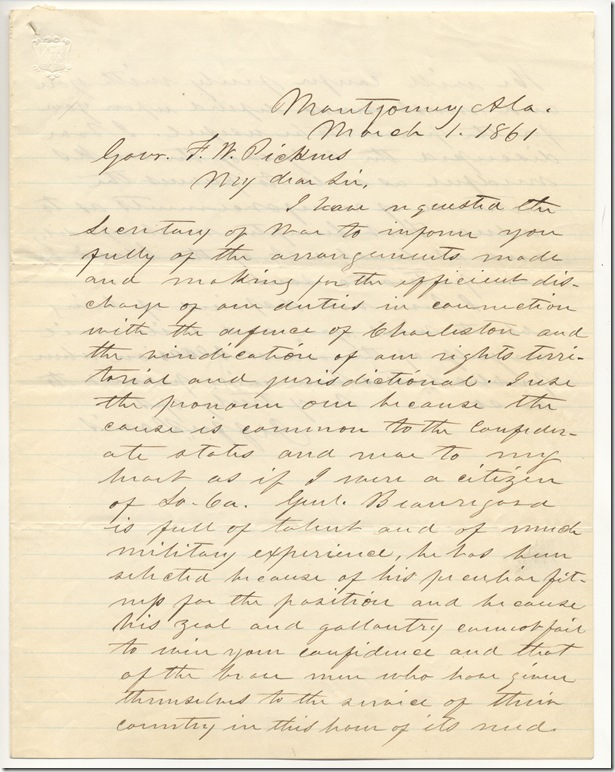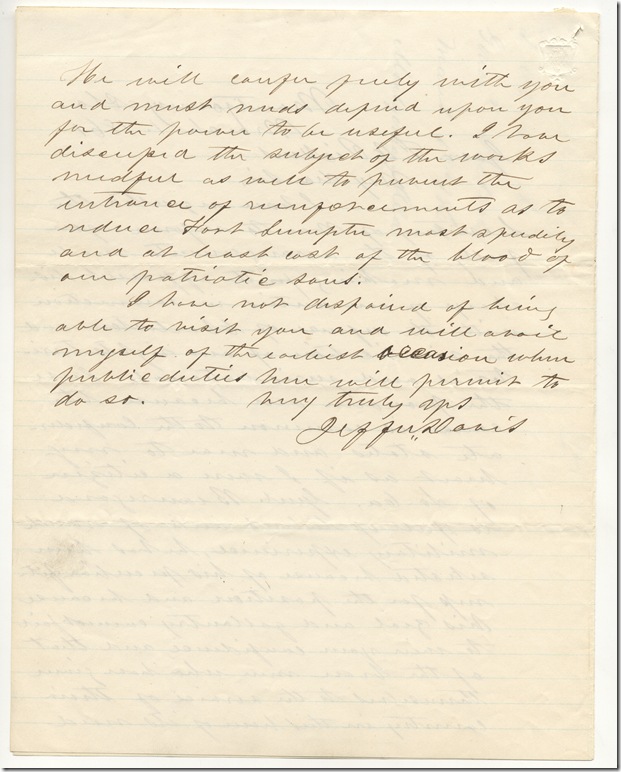During March and April 1861, after seven states had seceded and formed the Confederate States of America but before war broke out, Confederate Secretary of State Robert Toombs appointed Martin J. Crawford, John Forsyth, and A.B. Roman as Commissioners of the Confederate States to Washington, DC. Their purpose was to seek diplomatic recognition from the United States and negotiate peace—at least for a while. Central to the question of peace or war was whether the United States would continue to retain claim over federal forts located in the southern states that had seceded, including Fort Pickens in Florida and Fort Sumter in South Carolina. This item is transcribed from a letter book maintained by J.T. Pickett, secretary to the commissioners, containing copies of 72 letters, dispatches, and telegrams sent and received by the commissioners from the time of their appointment to the demand for the evacuation of Fort Sumter.
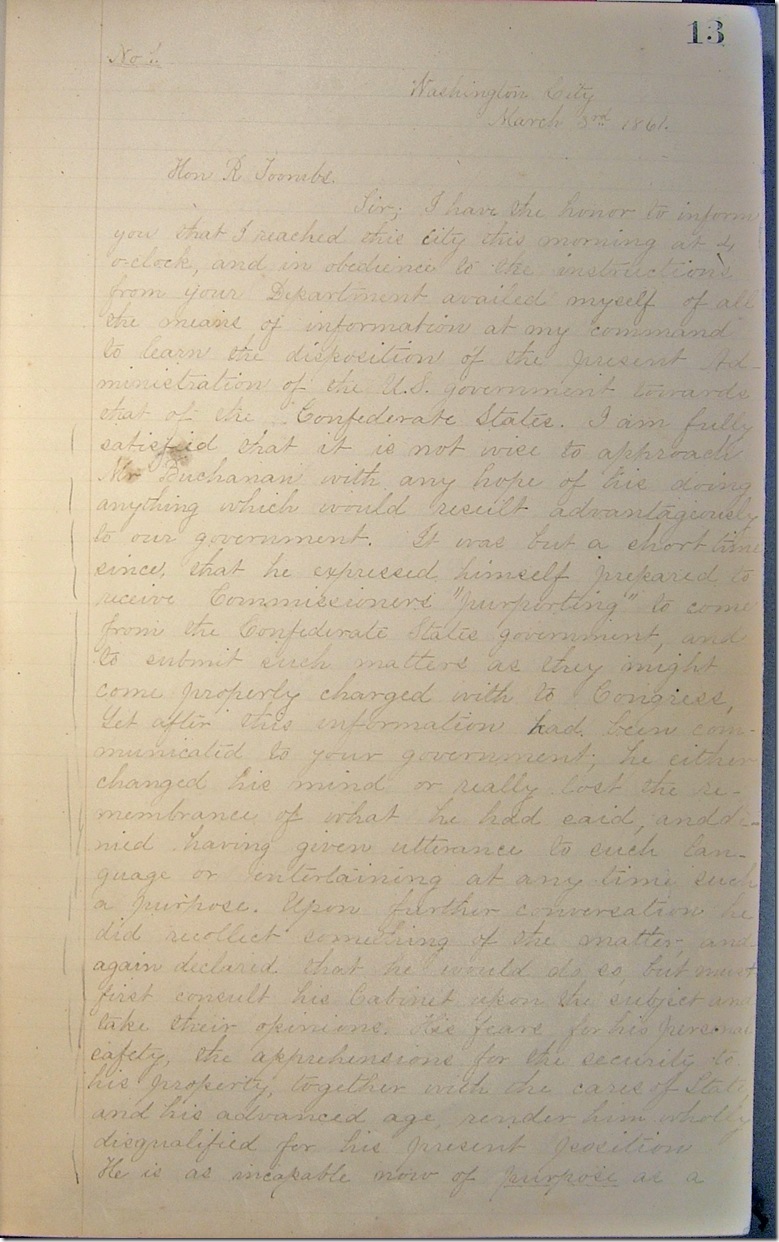
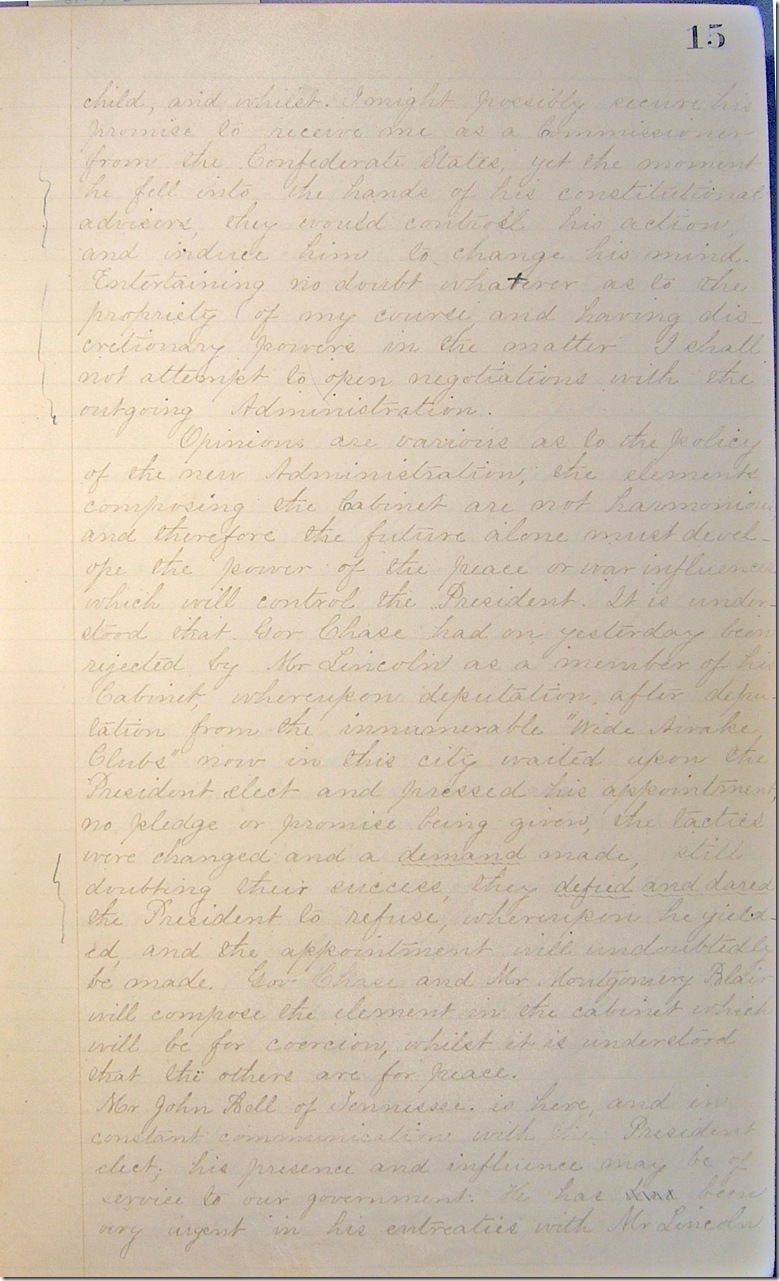
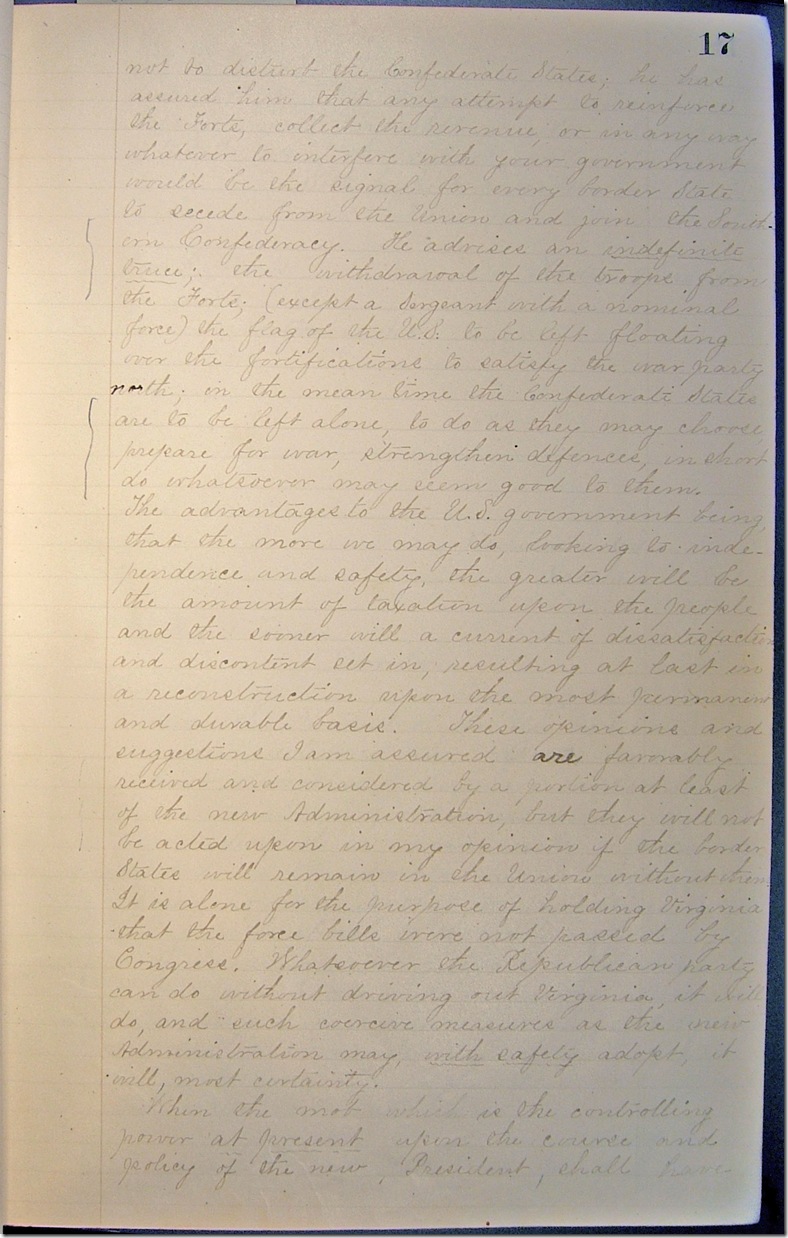
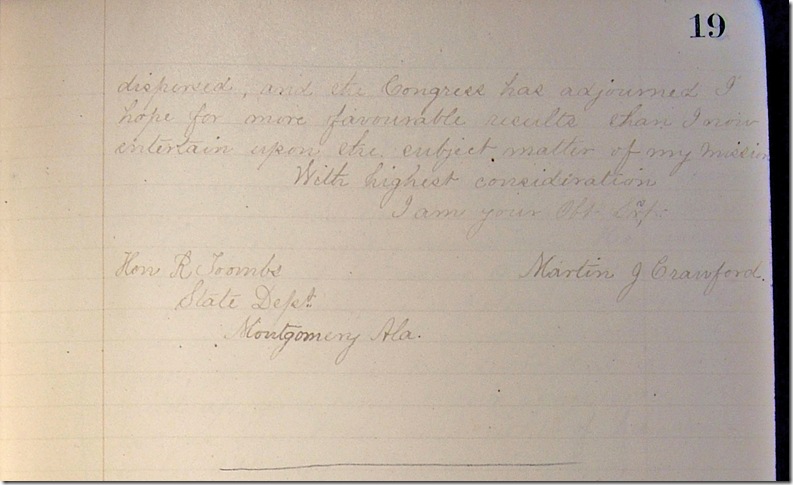
Transcript (excerpt):
No. 1
Washington City
March 3rd, 1861.
Hon R Toombs.
Sir; I have the honor to inform you that I reached this city this morning at 2, o’clock, and in obedience to the instructions from your Department availed myself of all the means of information at my command to learn the dispositions of the present Administration of the U.S. government towards that of the Confederate States. I am fully satisfied that it is not wise to approach Mr. Buchanan with any hope of his doing anything which would result advantageously to our government. It was but a short time since, that he expressed himself prepared to receive Commissioners “purporting” to come from the Confederate States government, and to submit such matters as they might come properly charged to Congress, yet after this information had been communicated to your government, he either changed his mind or really lost the remembrance of what he had said, and denied having given utterance to such language or entertaining at any time such a purpose. Upon further conversations he did recollect consulting of the matter—, and again declared that he would do so, but must first consult his cabinet upon the subject and take their opinions. His fears for his personal safety, the apprehensions for the security to his property, together with the cares of State, and his advanced age, render him wholly disqualified for his present position. He is as incapable now of purpose as a child, and while I might possibly secure his promise to receive me as a Commissioner from the Confederate States, yet the moment he fell into the hands of his constitutional advisers, they would control his actions, and induce him to change his mind. Entertaining no doubt whatever as to the propriety of my course, and having discretionary powers in the matter I shall not attempt to open negotiations with the outgoing Administration.
Opinions are various as to the policy of the new Administration, the elements composing the Cabinet are not harmonious, and therefore the future alone must develope the power of the peace or war influences which will control the President. […]
When the mob which is the controlling power at present upon the course and policy of the new, President, shall have dispersed, and the Congress has adjourned I hope for more favourable results than I now entertain upon the subject matter of my mission.
With highest consideration
I am your Obt Svt.
Martin J Crawford.
Citation:Commissioners of the Confederate States of America to the Government of the United States, letter book.Washington, D.C., Feb 27-April 11, 1861.AMS 811/20






